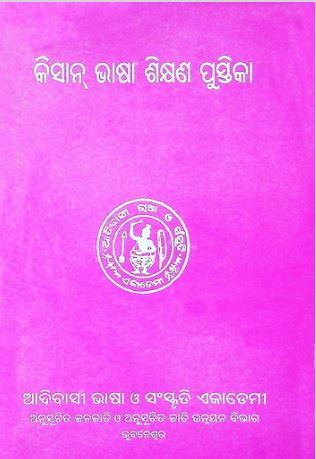Kisan Bhasa Sikshan Pustika by Martha Kujur, published in 2006, represents a significant contribution to Odia literature, specifically focusing on the linguistic education of tribal communities. This guidebook is not merely a manual but a compassionate endeavor to empower tribal populations through language education, fostering cultural preservation and social integration.
The book addresses a critical need in Odisha and beyond, where tribal communities often face linguistic barriers that impede their access to education, economic opportunities, and social inclusion. Martha Kujur, a dedicated educator and advocate for tribal rights, draws upon her expertise to create a comprehensive resource that bridges these gaps.
At its heart, “Kisan Bhasa Sikshan Pustika” serves as a practical guide for educators, community leaders, and policymakers involved in tribal education. It provides structured lessons and exercises designed to facilitate language acquisition and proficiency in Odia, thereby enhancing communication skills and literacy among tribal learners. By focusing on Odia, a widely spoken regional language, Kujur ensures that tribal individuals can access mainstream education and engage more effectively with broader society.
Moreover, the book is imbued with a deep respect for tribal cultures and languages. Kujur recognizes the rich linguistic diversity within tribal communities and advocates for the preservation of indigenous languages alongside the promotion of Odia proficiency. In doing so, she not only empowers individuals with practical language skills but also instills a sense of cultural pride and identity among tribal learners.
Beyond linguistic education, “Kisan Bhasa Sikshan Pustika” addresses broader socio-economic issues faced by tribal communities. Kujur discusses strategies for overcoming educational barriers, improving livelihood opportunities, and advocating for inclusive development policies. Her holistic approach underscores the interconnectedness of language, education, and socio-economic empowerment in promoting the well-being of tribal populations.
The guidebook’s impact extends beyond its instructional content. It serves as a catalyst for community engagement and advocacy, encouraging stakeholders to collaborate in advancing the educational rights of tribal communities. Kujur’s advocacy resonates with themes of social justice and equity, advocating for policies that prioritize linguistic diversity and inclusive education practices.
Furthermore, “Kisan Bhasa Sikshan Pustika” exemplifies the resilience and creativity of Odia literature in addressing contemporary challenges. By harnessing the power of language as a tool for empowerment, Kujur underscores the transformative potential of education in improving the lives of tribal individuals and communities.
In conclusion, Martha Kujur’s “Kisan Bhasa Sikshan Pustika” stands as a beacon of hope and empowerment in Odia literature. Through its innovative approach to language education, cultural preservation, and socio-economic advocacy, the book not only equips tribal learners with essential skills but also fosters a deeper understanding and appreciation of linguistic diversity. As a guidebook and a manifesto for change, it inspires readers to champion inclusive education and uphold the rights of marginalized communities, making a lasting impact on the landscape of tribal education in Odisha and beyond.
Books Info
| Books name | Kisan Bhasa Sikshan Pustika |
| Author | Martha Kujur, C. |
| No Of pages | 97 |
| Publisher | NA |
| Publication | NA |
| Printed At | Bholanath Press |
| Distributor | NA |

